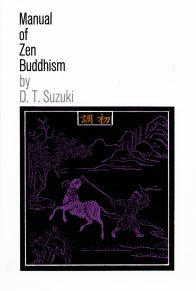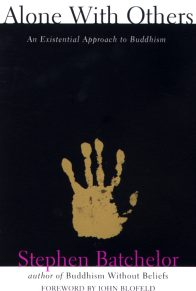A long time ago, a fool was invited to a neighbor’s house to share a meal. Once the food was served, the fool was displeased because he found the food tasteless. His neighbor noticed this and immediately sought to remedy the situation by offering the fool some salt.
After the fool sprinkled a bit of salt onto his food and took a bite, he said to himself, “The salt has really made the food quite tasty. If such a small amount of salt has had such an effect, just imagine what a lot of salt will do!” To his neighbor’s astonishment, he pushed his meal to the side and began to eat the salt all by itself. Of course, it wasn’t long before the foolish man had burned his mouth, and instead of being delighted he groaned in pain.
A person who misconstrues the Way of Understanding is just like this fool. He hears that by eating and drinking less, the Way may be gained, and so he fasts for seven or even fifteen days.
He ends up starving himself in vain and realizes nothing of the Way. Consider this carefully and you’ll find it is so.
FOOL’S MILK
In olden times, a fool sent out invitations to a feast to take place at his home the following month. He planned to serve his guests milk with their meal, but after thinking further he decided, “If I milk the cow now, I’ll have no place to store the milk and it may turn bad before the feast. It would be better to let the milk stay in the cow’s belly. After my guests arrive, I’ll just milk the cow and serve it fresh.” Pleased with his plan, the fool tied up the nursing calf in one place, and the cow in another, so that not a drop of milk would be wasted before the feast.
The day of the feast arrived a month later and the foolish man graciously received his guests. After they were assembled, he brought out the cow with much fanfare, but when he sat down to milk, the cow was completely dry. Not one drop of milk fell into the pail. When the guests saw this and heard what he had done, a few became angry, but most of them just shook their heads and laughed at his foolish ways.
This fool is like someone who wishes to practice the act of giving but decides to wait until he has a lot of money. However, no one knows what the future holds, and before very much can be saved something unforeseen takes place: he receives an enormous tax bill or is the victim of a fire or flood, or he is robbed and ends up losing what little he has managed to put away. He might even lose his life. The best way is to give right now. It is so.
A MAN WHOSE HEAD WAS HIT BY A PEAR
A long time ago, there was a bald-headed fool. Another fool came along and, just for the fun of it, struck the first fool on the head with a pear. After several more blows, the poor fool’s head was entirely covered with bruises. He had allowed himself to receive the blows in silence and did not even consider running away. When the beating was over, a man who had witnessed the episode said, “Why didn’t you run away and avoid being hit instead of taking the blows and getting hurt?” The fool answered, “I stayed because that man is ignorant. He boasts constantly and tries to prove how strong he is in any way he can. He saw that I was bald, but he was stupid enough to mistake my head for a stone. That’s why he struck it with a pear.”
The other man answered, “How could you call him stupid? You’re the ignorant one. Only a fool would take such a beating and not even consider running away!”
A monk who has no faith and can neither keep the precepts nor cultivate learning is like the fool who took this beating but could speak only of the stupidity of others. While he maintains the outward forms of practice, and therefore receives some benefit, ultimately he spends his life without understanding even the simplest of things. Such a monk really is a fool.













